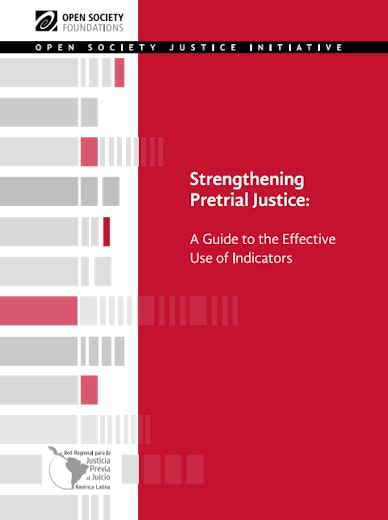Strengthening Pretrial Justice: A Guide to the Effective Use of Indicators
The decision to detain a person before he is found guilty of a crime, whether made by an arresting office, prosecutor, or judicial officer, can have a severe, lasting, and adverse impact. Pretrial detention is one of the worst things that can happen to a person: the detainee immediately loses his freedom, and can also lose his family, health, home, job, and community ties.
Informed policy makers are aware of these problems, and understand the need to eliminate the avoidable cost that the excessive and arbitrary use of pretrial detention generate. In addition, policymakers must preserve judicial independence and promote efficiency of the prosecution and police. In short, they need to achieve a balance among a number of factors to ensure the system is performing optimally.
But how do decision-makers obtain a more informed picture of how the pretrial justice system is performing? And, how can information be used to manage the system in an efficient way, while respecting important principles such as judicial independence, due process, and prosecutorial discretion? To implement good practices, a crucial first step is to gain a better understanding of the nature of the problem underpinning the less than optimal use of both pretrial detention and pretrial release.
This guide proposes a methodical approach, whereby empirically based indicators are developed, refined, and deployed to identify exemplary and problematic pretrial practices. This will empower policymakers and justice system managers to promote the former and improve the latter—and measure changes in performance over time and between places.
Topics
- Climate Justice
- Digital Rights and Fair Elections
- Discrimination and Racial Justice
- International Crimes
